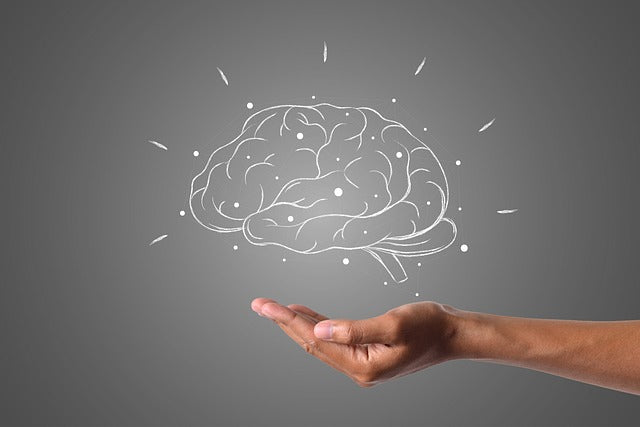Summer is in full swing, and for many of us, that means ditching the gym and fitting workouts in outdoors! Whatever your preferred form of outdoor exercise, it is crucial that you keep yourself well-hydrated because dehydration not only impairs exercise performance but is harmful to your overall health. Read on to learn about the importance of hydration during exercise and how deep-ocean minerals are a superior tool for supporting optimal hydration and physical activity.
Optimal Hydration Supports Exercise Performance
The importance of hydration for optimal exercise performance has been known since the 1950s, when early studies found that dehydration decreased VO2 max.1 Today, our understanding of this topic has expanded, with studies linking dehydration to decrements in aerobic performance and anaerobic performance and an increased the risk of heat illness-induced fatality due to impaired thermoregulation.2,3 Dehydration also alters fatigue perception, causing your body to feel tired during physical activity before it has actually reached its physiological limits.4
Dehydration also impairs focus and attention, so whether you’re chugging away at work indoors or hiking outdoors, maintaining optimal hydration is crucial!5 Concerning research indicates that both kids and adults frequently exercise in a dehydrated state, compromising not only their exercise performance, but their overall health.6,7 While carbohydrate-based sports drinks are widely promoted as the ideal hydration source for active kids, weekend warriors, and athletes alike, such beverages may not be the boon we’ve been led to believe they are!
Why Conventional Sports Drinks Aren’t the Answer
While dehydration is a significant problem, commercial sports drinks are not the answer. Commercial sports drinks such as Gatorade and Powerade have been marketed to professional athletes and weekend warriors alike for their hydrating properties. However, the truth is that most commercial sports drinks are full of unhealthy ingredients, including artificial sweeteners, antifoaming agents, refined sugars, and artificial flavorings. Until recently, Gatorade also contained brominated vegetable oils, a poorly-studied and potentially dangerous ingredient linked to early onset of puberty and thyroid dysfunction.8
If conventional sports drinks contain such unhealthy ingredients, then why are they widely promoted by the medical and athletics industries? According to an editorial published in the prestigious British Medical Journal, much of the hype surrounding sports drinks is based on studies produced by researchers with ties to the sports drink industry, thus confounding the validity and reliability of the evidence.9
The Hydration Benefits of Deep-Sea Water
Deep sea water contains numerous minerals, including magnesium, calcium, chloride, chromium, sodium, potassium, selenium, vanadium, and zinc. The high mineral content of deep-sea water is attributed to its low levels of phytoplankton activity and organic decomposition which permit abundant nutrients to remain there.
Deep-sea water is a perfect natural alternative to commercial sports drinks for hydrating your body during summer activities; in fact, scientific research has identified deep sea water as “an optimal rehydrating source over spring water and/or sports drinks.”10 It facilitates a faster return to baseline hydration status after demanding physical activity, reduces levels of exercise-induced muscle damage biomarkers, enhances the cerebral hemodynamic response, and alleviates the exercise-induced muscle inflammation compared to purified tap water.11,12,13,14 Deep ocean minerals have been found to increase high-intensity intermittent running capacity in soccer players, presumably by supplying minerals that enhance ATP production and calcium signaling in muscle; this finding suggests that deep-sea water not only alleviates dehydration but improves exercise performance!15
Deep-sea water also increases mitochondrial biogenesis, the formation of new mitochondria, in skeletal muscle by supplying micronutrients needed for the assembly of electron transport complexes and synthesis of ATP and heme.16 This effect has significant implications for exercise performance because mitochondria are responsible for producing the ATP that fuels skeletal muscle activity and exercise performance, among many other physiological processes.
Hypertonic Elixir for On-the-Go Hydration
Deep-sea minerals offer a premier hydration source for physically-active, health-conscious individuals. Our Hypertonic Elixir, which contains cold-processed pure deep-sea water packaged in sachets, is perfect for convenient on-the-go hydration. Add the contents of a sachet to filtered water in a non-toxic stainless-steel or glass water bottle to keep yourself hydrated wherever your outdoor adventures take you this summer!
References
1. Buskirk ER, et al. Work performance after dehydration: Effects of physical conditioning and heat acclimatization. J Appl Physiol. 1958; 12(2): 189-194.
2. Carlton A, Orr RM. The effects of fluid loss on physical performance: A critical review. J Sport Health Sci. 2015; 4(4): 357-363.
3. Coris EE, et al. Heat illness in athletes: the dangerous combination of heat, humidity and exercise. Sports Med. 2004; 34(1): 9-16.
4. Barley OR, et al. Acute dehydration impairs endurance without modulating neuromuscular function. Front Physiol. 2018; 9: 1562.
5. Benton D, et al. Minor degree of hypohydration adversely influences cognition: a mediator analysis. Am J Clin Nutr. 2016; 104(3): 603-612.
6. Williams CA, Blackwell J. Hydration status, fluid intake, and electrolyte losses in youth soccer players. Int J Sports Physiol Perform. 2012; 7(4): 367-374.
7. Maughan RJ, Shirreffs RM. Dehydration and rehydration in competitive sport. Scand J Med Sci Sports. 2010; 20(s3): 40-47.
8. Strom S. “Drink ingredient gets a look.” The New York Times website. 2012. https://www.nytimes.com/2012/12/13/business/another-look-at-a-drink-ingredient-brominated-vegetable-oil.html.
9. Cohen D. The truth about sports drinks. BMJ. 2012; 345: e4737.
10. Keen DA, et al. The impact of post-exercise hydration with deep-ocean mineral water on rehydration and exercise performance. J Int Soc Sports Nutr. 2016; 13:17.
11. Hou CW, et al. Deep ocean mineral water accelerates recovery from physical fatigue. J Int Soc Sports Nutr. 2013; 10(1): 7.
12. Stasiule L, et al. Deep mineral water accelerates recovery after dehydrating aerobic exercise: a randomized, double-blind, placebo-controlled crossover study. J Int Soc
Sports Nutr. 2014; 11: 34.
13. Wei CY, et al. Deep ocean mineral supplementation enhances the cerebral hemodynamic response during exercise and decreases inflammation postexercise in men at two age levels. Front Physiol. 2017; 8: 1016.
14. Saovieng S, et al. Deep ocean minerals minimize eccentric exercise-induced inflammatory response of rat skeletal muscle. Front Physiol. 2018; 9: 1351.
15. Higgins MF, et al. Oral ingestion of deep ocean minerals increases high-intensity intermittent running capacity in soccer players after short-term post-exercise recovery: A double-blind, placebo-controlled crossover trial. Mar Drugs. 2019; 17(5): pii: E309.
16. Ha BG, et al. Stimulatory effects of balanced deep sea water on mitochondrial biogenesis and function. PLoS One. 2015; 10(6): e0129972.




